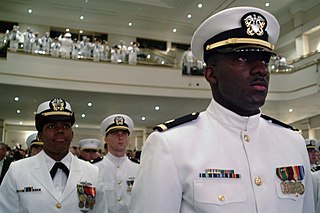An internship is a period of work experience offered by an organization for a limited period of time. Once confined to medical graduates, internship is used practice for a wide range of placements in businesses, non-profit organizations and government agencies. They are typically undertaken by students and graduates looking to gain relevant skills and experience in a particular field. Employers benefit from these placements because they often recruit employees from their best interns, who have known capabilities, thus saving time and money in the long run. Internships are usually arranged by third-party organizations that recruit interns on behalf of industry groups. Rules vary from country to country about when interns should be regarded as employees. The system can be open to exploitation by unscrupulous employers.

A graduate school is a school that awards advanced academic degrees with the general requirement that students must have earned a previous undergraduate (bachelor's) degree. A distinction is typically made between graduate schools and professional schools, which offer specialized advanced degrees in professional fields such as medicine, nursing, business, engineering, speech–language pathology, or law. The distinction between graduate schools and professional schools is not absolute since various professional schools offer graduate degrees and vice versa.

Bright Futures is a scholarship program in the state of Florida. It is funded by the Florida Lottery and was first started in 1997.

The HOPE Program created in 1993 under the supervision of Georgia Governor Zell Miller, is Georgia's scholarship and grant program that rewards students with financial assistance in degree, diploma, and certificate programs at eligible Georgia public and private colleges and universities, and public technical colleges. HOPE is funded entirely by revenue from the Georgia Lottery and is administered by the Georgia Student Finance Commission (GSFC).

Quinnipiac University School of Law is located in North Haven, Connecticut. It is one of Quinnipiac University's graduate schools. Quinnipiac Law is the newest law school in Connecticut, having received full accreditation from the American Bar Association in 1992. It is a member of the Association of American Law Schools, and is currently ranked 129th by U.S. News & World Report.

The Naval Reserve Officers Training Corps (NROTC) program is a college-based, commissioned officer training program of the United States Navy and the United States Marine Corps.
The Columbus School of Law, also known as Catholic Law or CUA Law, is the law school of The Catholic University of America in Washington, D.C.
The Doctorate of Medicine and of Philosophy (MD–PhD) is a dual doctoral degree for physician–scientists, combining the professional training of the Doctor of Medicine degree with the research expertise of the Doctor of Philosophy degree; the Ph.D. is the most advanced credential in the United States. Other dual degree programs exist, such as the joint MD–JD degree; both the JD professional degree and the MD are not universally recognized internationally, however. The National Institutes of Health currently provides 50 medical schools with Medical Scientist Training Program grants that support the training of students in MD–PhD programs at these institutions through tuition and stipend allowances. These programs are often competitive, with some admitting as few as two students per academic year. The MCAT score and GPA of MD–PhD matriculants are often higher than MD only matriculants.

The Thomas R. Pickering Foreign Affairs Fellowship Program is a graduate school fellowship program that provides funding for graduate students as they prepare academically and professionally to enter the U.S. Foreign Service.
A super senior is a student in a four-year educational institution, such as a high school or undergraduate school, that has over 4 years in attendance or has a surplus of credits required for a diploma and has not yet graduated.

The Sturm College of Law is the professional graduate law school of the University of Denver. It is one of two law schools in the state of Colorado. Founded in 1892, the Sturm College of Law was one of the first in America's Mountain West. The college is located on the University of Denver's campus, about seven miles south of downtown Denver. According to Denver Law's 2017 ABA-required disclosures, 67.9% of the Class of 2017 obtained full-time, long-term, JD-required employment nine months after graduation, excluding solo practitioners.
Charlotte School of Law was an independent for-profit college in Charlotte, North Carolina established in 2006. It was provisionally accredited by the American Bar Association (ABA) in 2008, and fully accredited in 2011. However, the ABA placed the school on probation in 2016, resulting in the school's closure the following year. While Charlotte Law served the community through expungement programs and restitution self-help clinics, it was also criticized for alleged mismanagement and compliance issues, which were later found to be true. Charlotte Law was owned by the InfiLaw System.
The Common Data Set (CDS) is a product of the Common Data Set Initiative, "a collaborative effort among data providers in the higher education community and publishers as represented by the College Board, Peterson's, and U.S. News & World Report." The stated goal is to provide accurate and timely data to students and their families while decreasing the workload of administrators. In producing their popular publications and rankings, these publishers "ask the same core questions" of institutions using the Common Data Set to define those questions and their responses. These data are also used in public accountability efforts such as the Voluntary System of Accountability's College Portrait.
Cal Grant is a financial aid program administrated by the California Student Aid Commission (CSAC) providing aid to California undergraduates, vocational training students, and those in teacher certification programs. Cal Grants are the largest source of California state funded student financial aid.
The University of California, Irvine has over fourteen academic divisions.
Student athlete is a term used principally in the United States to describe students enrolled at postsecondary educational institutions, principally colleges and universities, but also at secondary schools, who participate in an organized competitive sport sponsored by that educational institution or school. The term student-athlete was coined in 1964 by Walter Byers, the first executive director of the National Collegiate Athletic Association (NCAA). The term is also interchangeable with the synonymous term “varsity athlete”.

The University of Missouri School of Law is the law school of the University of Missouri. It is located on the university's main campus in Columbia, forty minutes from the Missouri State Capitol in Jefferson City. The school was founded in 1872 by the Curators of the University of Missouri. Its alumni include governors, legislators, judges, attorneys general, and law professors across the country. According to Mizzou Law's 2016 ABA-required disclosures, 82 percent of the 2016 class obtained full-time, long-term, JD-required employment nine months after graduation.

Education in Georgia consists of public and private schools in Georgia, including the University System of Georgia, Technical College System of Georgia, private colleges, and secondary and primary schools.

Mahidol University International College is Thailand's first public international college. It is part of Mahidol University and is located on the university's Salaya Campus in Nakhon Pathom Province.
New York State's Excelsior Scholarship program provides certain residents with free tuition for full-time study at its state universities: State University of New York (SUNY) and City University of New York (CUNY). On April 11, 2017, New York became the first American state to make four-year public colleges tuition-free for those under an earnings threshold.









